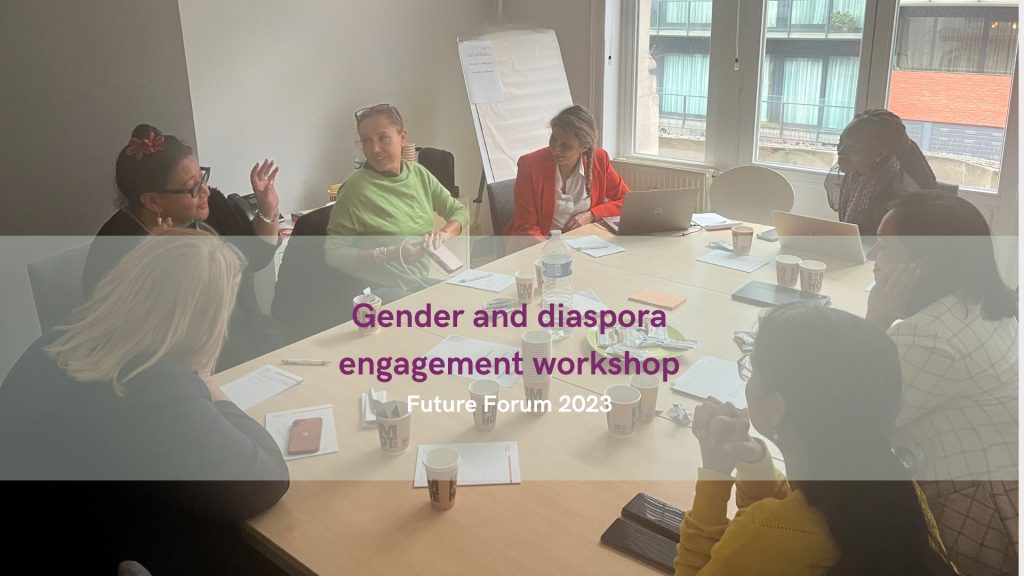
In celebration of International Women’s Day 2024, themed “Invest in women: Accelerate progress”, we spotlight gender dynamics in diaspora engagement. At EUDiF’s 2023 Future Forum, we hosted a workshop on gender and diaspora engagement with experts from diverse regions. During the workshop we attempted to define gender in diaspora engagement and explored how to transform challenges into opportunities…
Definitions first
Gender, from the diaspora engagement perspective, includes not just women’s issues but is a holistic concept intertwined with culture, religion, and migration journeys. It extends beyond geographical boundaries to include women in the diaspora and country of origin alike. The focus group discussion in the sidelines of Future Forum 2023 explored gender through the lenses of parenthood, fatherhood, family dynamics, sexual identities, culture, religion, and the unique challenges women face during migration.
Invest in women: Accelerate progress
This year’s International Women’s Day theme is “Invest in women: Accelerate progress”. The theme highlights an annual deficit of $360 billion in achieving gender-equality measures by 2030, calling for more investment in women in five key areas: human rights, ending poverty, implementing gender-responsive financing, shifting to a green economy and care society, supporting feminist change-makers. Thinking back on our gender focus session, two areas in the intersection between a gender transformative approach and diaspora engagement that can benefit from investment are mental health and leadership.
Mental health
Women have different mental health needs in different contexts, including elements linked to migration and diasporic experience. This necessitates a broad understanding of mental health and tailored support, which could include informal spaces for support and a role for religious groups.
Empowering women in leadership roles
Among the challenges cited in the meeting was the “leadership crisis”, referring to favouring men over women in leadership positions. Notable exceptions challenged these norms, such as in Pacific societies, where women have significant power and to the final word in decision-making processes.
Given the wide recognition of diaspora women as catalysts for change – they actively engage in remittances, investment and development projects in formal and informal ways and via organisations – women are clearly influential and generate impact. Their influence shapes strategies, technologies, and social impact at home and in the diaspora. Any stereotypical notions of diaspora women as followers must be systematically challenged, whilst support for gender-responsive leadership and capacity building can help elevate more women into leadership positions.
Looking ahead
This theme of International Women’s Day resonates with our efforts as we explore the intersection of gender and diaspora engagement. As we join voices with other international organisations to invest financially in women to accelerate progress, EUDiF commits to investing holistically in women in the diaspora, women whose vision, knowledge and energy make them a development force to be reckoned with.
EUDiF will continue to platform the role of diaspora women in development and aspires to be a gender-transformative project. This commitment will translate into capacity development projects, targeted training on gender mainstreaming in development projects, and research with a gender focus.
Thank you to the roundtable participants: Helga Flamtermesky, Laila Tasmia, Nicolas Tavitian, Nupur Kohli, Paddy Siyanga Knudsen, Pefi Kingi and Angelica Broman

Cover photo from Unsplash